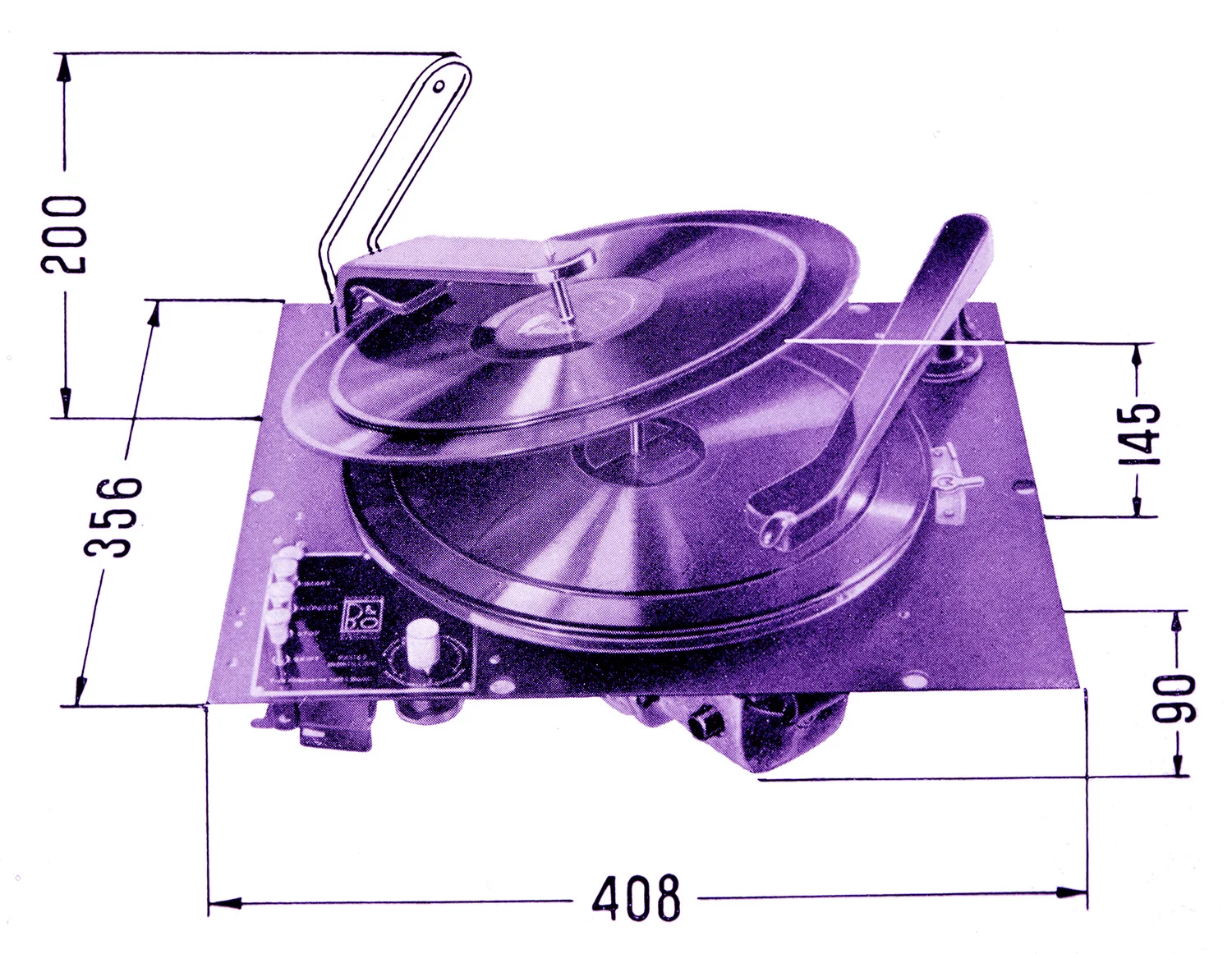Sit back, close your eyes and tune in your ears – join us on a journey to musical freedom via the new lands imagined up by jazz in the 1960s. Our guide: Derek Walmsley, Editor of The Wire music magazine.
Schematic of a B&O automatic record changer from 1943.
mix
Jazz New Lands
Sit back, close your eyes and tune in your ears – join us on a journey to musical freedom via the new lands imagined up by jazz in the 1960s. Our guide: Derek Walmsley, Editor of The Wire music magazine.
A couple years ago I became fascinated with the idea of freedom in jazz – specifically, areas of jazz that seemed to reference freedom in some way, but weren't explicitly in the genre of free jazz such as Albert Ayler or John Coltrane post-Ascension. One way the idea of freedom seems to express itself in jazz is through the titles of tracks, and in the mid-1960s, spurred on in particular by newly independent African nations like Ghana, Mali, Senegal and so on, many jazz tracks of the era reference far-off places in Africa, the Middle East, Asia and beyond. I wrote an occasional series on The Wire website discussing some of these tracks. Here's some other tracks that were planned for the series.
01
Pete La Roca
"Basra" (1965)
La Roca was one of the great drummers of the post-bop era, although he released only a handful of albums as leader. His whole album Basra is a masterpiece of modal jazz with intricate, intertwined chords on the title track that wrap around each other. Free jazz was kicked into full swing by John Coltrane’s Ascension album around the same time as Basra’s release, but this suggests a different sort of freedom – by exploring the same theme repeatedly, there’s a subtle feeling of warping time. Composed by La Roca, it's dense, humid and heavy, with a nagging, anxious melodic line by Joe Henderson on tenor. According to producer Michael Cuscuna, La Roca named it Basra not for any explicit Middle East influence but because he liked the name.
02
Bobby Hutcherson
“Ankara" (1968)
Vibraphone player Bobby Hutcherson was one of the most adventurous composers and band leaders on the famed Blue Note jazz label's roster, although his catalogue is poorly served for some reason, perhaps because vibraphone is seen as something of a lightweight instrument. But that's precisely why "Ankara" is so magical. Composed in a five-beat time signature and with a repeating bassline which seems to float on air, it echoes Detroit techno or deep house – new forms of music which were still decades away.
03
Joe Henderson
"Punjab" (1964)
Henderson was not a free player in any sense – he doesn't break many harmonic rules or play dissonantly. However, he was one of the most original players of the era because of an almost obsessive drive to not repeat his phrases or mimic what competing tenor saxophonists were already doing. "Punjab" is fascinating in that you can hear the tension in the piece as he attempts to find new spaces for the melody to inhabit. There's no obvious connection with the Indian subcontinent in the music, but the tentatively climbing chorus suggests some kind of obscure interest in the ascending lines of raga.
04
Wayne Shorter
"Angola" (1965)
Shorter is one of the most sophisticated composers of the post-bop era, and a notable aspect of his pieces during this time is their sheer turbulence. Pieces like "Juju" and "Angola" alternate relatively conventional melodic passages with sustained chords that have all kinds of fierce modal extemporatisation on top. On this piece he sets himself against short passages of wild piano from McCoy Tyner which he has to negotiate, as if dropping himself into foreign territory. The interest in a piece like this is hearing a player who can be so eloquent and fluid forced into something more like a dogfight.
05
John Coltrane
“India" (1962)
Perhaps the most important composition dedicated to a far off place in all of jazz. John Coltrane also wrote a piece entitled "Africa", but whereas the former can be weighty and even a little ponderous, "India" feels like it's stretching the fabric of time. What Coltrane did here is take some of the Eastern themes that had been infiltrating jazz from people like Yusef Lateef and tackle them head on, completely discarding conventional compositional structures of jazz and just dwelling on a single chord, improvising in an almost snake-charmer style around it, and patiently exchanging solos with Eric Dolphy around it. "India" could be as much as 20 minutes long in live performances, but was as much an inward journey as an outward one.
Derek Walmsley is Editor of The Wire music magazine, has contributed to the London Review of Books, makes occasional appearances on BBC Radio 6 Music, and is the ex-keyboard player in Southall Riot. He moved to London in 1997 in search of jungle but found only drum 'n' bass, and since then he's written extensively on grime, reggae, jazz and beyond.




